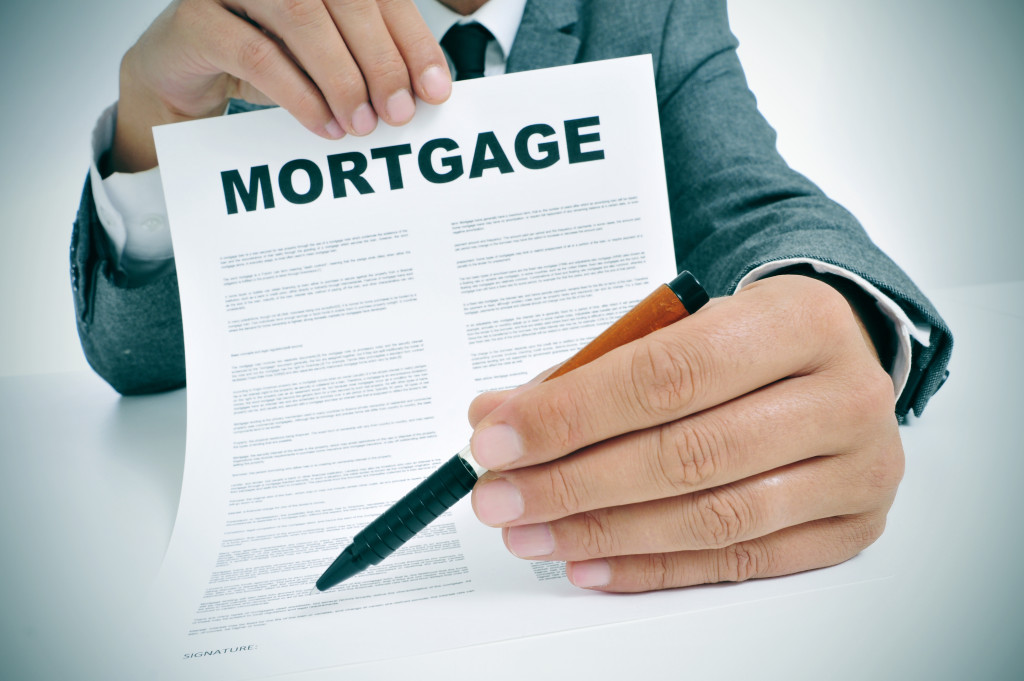Many potential homeowners are on the lookout for different mortgage programs, and this is understandable. Usually, government-backed loans like USDA and VA have a zero down payment. Other options will allow applicants with low credit scores and income.
Some also find traditional loans to be expensive, especially if the prevailing interest rate is high. Lastly, borrowers will find it easier to secure a loan since a mortgage company can offer different types.
A number might provide something called a balloon mortgage.
What Is a Balloon Mortgage?
A balloon mortgage is a type of home loan that requires the borrower to make monthly payments for a set period before repaying the entire remaining balance upon expiration. In contrast, a traditional fixed-rate home loan will have an amortization schedule. Each payment then reduces the principal and interest owed on your loan.
For example, if you are taking out a loan for $100,000 to be repaid over five years with monthly payments of $804.95, the balloon would be required at the end of this term. Meanwhile, if you finance a home traditionally, the monthly payments can be higher. However, you don’t need to pay off a huge amount in the end since your repayments already cover both the interest and the principal.
Other characteristics of a balloon mortgage include:
• A balloon loan typically lasts five years, making it helpful for those who need temporary financing. But other terms can still vary by lender.
• It can carry a higher interest rate than a traditional loan. Many lenders view this as riskier than other mortgages since the borrower would have to pay a sizable amount at the end of the term. Moreover, the life of the loan is short. Lenders often make money from the interest payments made.
• It can have a lower down payment. Some lenders do not ask for private mortgage insurance (PMI). This can make it easier for some first-time homebuyers to qualify.
What Happens When the Loan Is Due?

Balloon mortgages are only available for certain terms, usually between one and five years. Usually, the first option is refinancing. It allows homeowners to take out another mortgage or use the money for home improvements or renovations.
If they don’t want to do this, they can sell their homes and walk away from the loan. However, if borrowers are unable or unwilling to repay the balance upon maturity, they might need to foreclose on their properties.
Balloon mortgages are generally non-recourse loans. If you default on your payments, you only have to give up your property, not any of your other assets. There is, of course, the potential for foreclosure depending on lenders’ policies. Certain states might also require you to forfeit your other assets if you default on the loan. When shopping around for lenders, try to find those that have flexible repayment terms so that you’ll have time to renegotiate or sell off your property if necessary.
What if you plan to foreclose the property? This isn’t the best idea since this move can potentially hurt your credit report and score. You will be less qualified for better loans in the future.
However, if you want to cover all your bases, don’t forget to know what the foreclosure procedure entails, so you aren’t blindsided if your lender decides to foreclose.
You also have to learn how to refinance your balloon mortgage before the term expires so that you don’t wind up with huge monthly payments once it matures. Lastly, look into whether foreclosure is costly since this will help determine whether refinancing makes sense financially.
Who Can Benefit the Most from a Balloon Mortgage?
Either way, these types of loans are best suited for borrowers who have short-term financial needs or expect an increase in their income soon after signing on the dotted line. These can also be for people planning to sell their house after a few years.
This type of financing is often used in bridge financing when buying a property with cash flow issues during construction. A good example would be someone purchasing land that they will develop into a home or commercial space.
Some choose this type of financing when settling for a loss on property that was previously purchased on speculation but can’t be resold at an attractive price.
Balloon loans are not for everyone. If you don’t want the hassle that goes with paying an incredible amount before the mortgage ends or you’re looking for some predictability in your repayments, stick with conventional loans.
Otherwise, if you are not sure you will stay in the property for a long time or don’t mind reselling it after five years, then a balloon mortgage is an attractive financing option.

